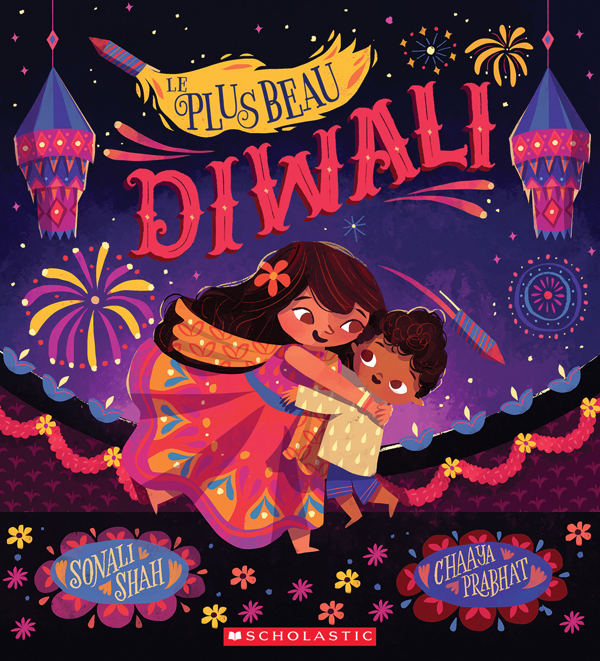Nov 12, 2023
To celebrate Diwali, OPL welcomes guest blogger Priti Srivastava. Priti works for the City of Ottawa, is mother of two grown children, and having lived in both India and Canada, Priti is passionate about culture and philosophy.
Diwali, or Deepavali, is a five-day Hindu festival symbolizing the “spiritual victory” of light over darkness, good over evil and knowledge over ignorance.
It is observed on the 15th day of Kartik—the eighth lunar month, which is usually late October or early November on the Gregorian calendar. The name is derived from the Sanskrit words ‘deepa’ or ‘diya’ meaning lamp, and ‘avali’ meaning groups or rows. Diwali isn't just significant to Hindus. it is also celebrated by members of other religions including Buddhists, Jains and Sikhs.
Traditionally, during the Diwali season, people wear their finest clothes, illuminate their homes and workplaces with oil lamps (diyas), candles or decorative lights and create beautiful designs (rangoli) on their entrance floors to welcome guests. Families get together to offer prayers and worship Lord Ganesha (wisdom and fortune) and Goddess Lakshmi (prosperity and wealth), light fireworks and partake in get togethers over feasts, where sweets and gifts are exchanged.
Most Hindus will tell you Diwali commemorates the ancient story of the righteous Prince Ram who returned to his kingdom Ayodhya, after defeating the evil King Ravan. Some dedicate Diwali to the worship of Goddess Kali, while others believe Diwali was when Lord Vishnu married Goddess Lakshmi. In South India, Diwali marks the slaying of Narakasura by Lord Krishna while among Jains, it marks the Nirvana day of Lord Mahaveera, the 24th Tirthankar. Sikhs celebrate this day as Bandi Chor Diwas (prisoner release day) to mark the release of the sixth Guru Hargobind Sahib in 1619.
Whatever the background story or belief though, Diwali is celebrated by most as a Festival of Lights.
I moved back to Ottawa a couple years ago after spending almost 15 years in India. Of course, I miss running up to the terrace on Diwali night to admire the skyline—lit up with a hundred firework patterns in every direction. The slight chill in the air mixed with the sweet smell of ghee-filled diyas flickering on every rooftop and balcony. Kids running down streets excitedly, a gujiya (traditional sweet) in one hand and a sparkler in the other. Decking up the family prayer room with marigold garlands and mango leaves. Late-night get togethers with sumptuous spreads and card games. Dressing up in handloom silk sarees and brightly coloured lehengas.
When my parents lived in Ottawa in the 60s and 70s, they tell me Diwali celebrations were small and compact. A few families would get together and try to emulate the traditions, as they reminisced the celebrations back home. Over the last 50 years, the city has experienced a growing demographic and a consistently increasing exposure to South Asian culture. The City of Ottawa has an incredibly impressive mandate that supports cultural diversity. Today, more than 50,000 residents look forward to large-scale Diwali events, elaborate feasts and most of all the poojas (worship) that are organized in the many Hindu Mandirs (temples) and Sikh Gurudwaras in the city.
This year, Diwali falls on November 12. If you know someone who is celebrating Diwali, you may greet them with “Shubh Deepavali” or a simple “Happy Diwali.”

